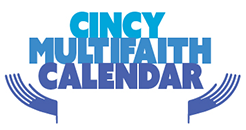By: Kathleen Sellers
Cincinnati, OH – On February 26, Faith Communities Go Green (FCGG), an initiative of the Green Umbrella, hosted the webinar Save (for) the Planet: Know the POWER of your Dollars, which was attended by more than thirty people. This educational event was designed to teach participants how to make Earth-friendly choices with their money, by exploring how banking choices impact the planet and climate change. Ditte Wolin, Member of TH!RD ACT, Ohio Working Group; Howard Fischer, Steward and the Chief Evangelist at Gratitude Railroad; and Kyle Väth, Parishioner at Christ Church Cathedral Episcopal Church engaged in a conversation in which they shared insights from their decades of combined experience with sustainable investing, divestment, and collective action concerning sustainable finance. Becca Desai, Co-Leader of FCGG Education/Lifestyles Working Group, moderated the conversation.
While each speaker had distinct experiences and training in this topic, they agreed that thoughtful engagement with the banking system is one of the most impactful ways that we can individually and collectively live out sustainable values. “Every dollar we spend impacts the environment,” explained Howard Fischer, an emeritus leader in capital management, which is why people should be intentional that their spending can and should “best serve your values and needs.” One key way that people can do this is by investing in companies that share their values for sustainability. Fischer explained that there are financial management companies that specialize in impact investing and sustainable investment, and many firms today offer investment portfolios that do not include any fossil fuel companies, for example.
Investing is not the only way that presenters recommended aligning their money with their values for sustainability. Kyle Väth described how the choice of where to bank, what credit card to use, and even where to purchase auto or home insurance can have significant impact on the environment, because each of these financial tools and institutions uses our money for some “downstream” purpose. That is, they profit by investing our money in other companies, companies which may or may not be sustainable. If we are deliberate about the financial institutions we work with we can be more confident that our money is supporting a sustainable future. The choice to act so deliberately is necessary in our capitalistic society. As Väth asserted, “Where there is profit, we need prophets.”
Both Väth and Ditte Wolin were clear that while our individual actions do matter, working together with others increases our impact. Wolin, who is active in an organization called TH!RD ACT, which mobiles citizens over 60 to fight for climate justice and democracy, reflected, “What do you tell your grandkids [you did to respond to climate change]?” One clear answer, she suggests, is to move your money. But by working with TH!RD Act, Wolin shared how collective action among concerned citizens can encourage larger financial institutions to move their money too, like when a petition from tens of thousands of concerned citizens prompted the new CEO of Costco to reconsider their ties to CitiBank.
Väth brought the idea of collective action even closer to home, by reflection on how congregations can also take action to make more sustainable investments. And he explained, people of faith should address this issue because climate change is indirectly causing harm to the most vulnerable in our society. If we care about the vulnerable, and care about future generations, we need to reckon collectively with the fact that “money is where the power is.” Väth recommended several steps that congregants can take to start moving their faith communities toward more sustainable action, beginning with forming a “Green Team.”
Anyone interested in exploring this idea further, or wanting to learn more about sustainable investing, divesting, and reinvestment strategies can begin with this Program Toolkit, provided by the presenters at this event. You can also get more engaged in sustainability work in the Southwest Ohio region by visiting the Faith Communities Go Green website: https://fcgg.org/.




